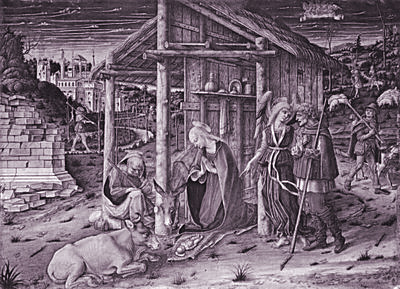 Almost universally today, Christians throughout the world celebrate the birth of Jesus Christ on December 25. Why do Christians celebrate on this day and is it a good idea to do so?
Almost universally today, Christians throughout the world celebrate the birth of Jesus Christ on December 25. Why do Christians celebrate on this day and is it a good idea to do so?
To begin with, nowhere in the Gospels is there any clear indication of the time of year Jesus was born. Perhaps the most specific time marker in Scripture is the statement in Luke 2:2 that Jesus was born during a census while Quirinius was governor of Syria. But we don’t know precisely what year that census occurred, much less what month. Furthermore, the few other clues that are there do not necessarily point toward a December date. For example, some have suggested that the presence of the shepherds sleeping with their flocks at night is unlikely to have occurred in December, since, even in Palestine, it is a cold time of year. In fact, for roughly three hundred years after Jesus was born no one celebrated His birth on December 25. When some Christians, such as Clement of Alexandria, first began trying to figure out the date of His birth much later, they tended to put it sometime in the spring, not the winter, but even then it there was no consensus on the right date.
When, then, did Christians begin celebrating Christmas on December 25? The answer is we don’t know exactly, though it was definitely sometime in the fourth century and in the city of Rome. The earliest records we have for a celebration on December 25 date from this time and come from the imperial capital. From Rome the celebration gradually spread eastward throughout the Roman Empire. Evidence that it was a recent innovation is that in the year 386 the renowned preacher John Chrysostom pointed out in a Christmas sermon that the festival of Christmas was less than ten years old in Antioch, but had already become very popular. The celebration must have deeply resonated with already existing Christian devotion, for it spread further until it reached the furthest corners of the Christian Church.
Some have attempted to argue that the Christian festival of Christmas on December 25 has pagan roots because the birthday of Sol Invictus (“Invincible Sun”) was celebrated on the same day. This charge is true insofar as Sol Invictus was indeed celebrated on this day. However, the truth of the matter is that we simply don’t know whether the birth of Jesus or the birth of Sol Invictus was the earlier celebration, since the first clear evidence for both celebrations comes from the same time period. The first calendar to record Jesus’ birth as December 25 dates from the year 354, and it likewise preserves the first clear reference to the celebration of the birth of Sol Invictus on the same day. We likely will never know whether the Christians borrowed from the pagans or vice versa, but in the end it matters little for Christian theology and worship.
So does it matter what day you celebrate Christmas or even if you celebrate it at all? Well, in one sense the answer is no, since Christians seem to have gotten by perfectly fine for the first three hundred years without knowing or being too concerned about when Jesus was born. However, in another sense, celebrating Jesus’ birth serves the important purpose of sanctifying the calendar. In classical Rome the year was full of festivals, nearly all of which were tied to the worship of pagan gods. When Christians began trying to reshape the imagination of believers throughout the Empire, they realized that they had to come up with their own calendar to mark the important points in the year. Celebrations such as Christmas on December 25, Epiphany on January 6, and Lent in the spring were intended to remind Christians that the most important events in all of human history had occurred in the 33-year span of Jesus’ life. Henceforth, even the calendar would become an instrument for proclaiming the good news of the birth, death, and resurrection of the Son of God. And that is a message that never grows old, but deserves to be retold with each new year.
—————————————
Note: This article was originally published on the BibleMesh Blog on December 13, 2012.